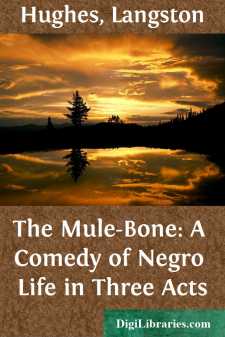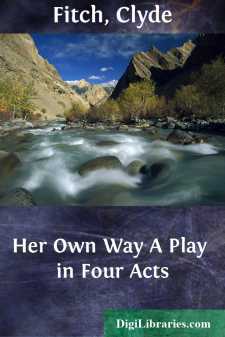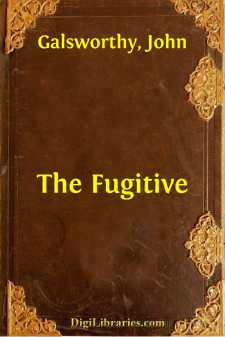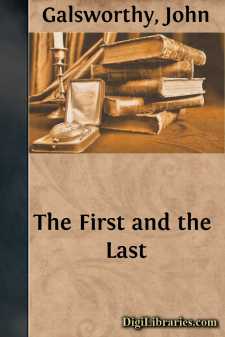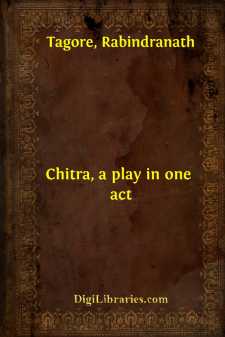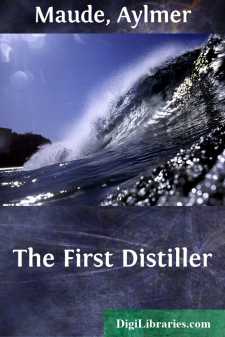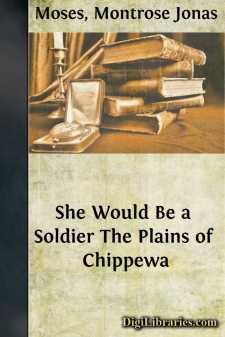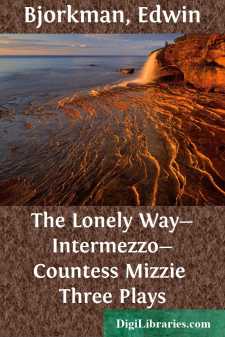Drama Books
Sort by:
by:
Langston Hughes
CHARACTERS JIM WESTON: Guitarist, Methodist, slightly arrogant, agressive, somewhat self-important, ready with his tongue. DAVE CARTER: Dancer, Baptist, soft, happy-go-lucky character, slightly dumb and unable to talk rapidly and wittily. DAISY TAYLOR: Methodist, domestic servant, plump, dark and sexy, self-conscious of clothes and appeal, fickle. JOE CLARK: The Mayor, storekeeper and postmaster,...
more...
by:
Clyde Fitch
The nursery. Half-past two in the afternoon. A cool, delightful white room, with a frieze of children playing in the ocean spray; shelves of bright-colored books on the walls, and the months of a large calendar by Elizabeth Shippen Green framed underneath. There is a deep bow-window at the back; the principal door is at the Left, and a smaller one on the Right. Toys of all sizes, for all ages, are...
more...
by:
John Galsworthy
ACT I The SCENE is the pretty drawing-room of a flat. There are twodoors, one open into the hall, the other shut and curtained.Through a large bay window, the curtains of which are not yetdrawn, the towers of Westminster can be seen darkening in asummer sunset; a grand piano stands across one corner. Theman-servant PAYNTER, clean-shaven and discreet, is arranging twotables for Bridge. BURNEY, the maid,...
more...
by:
John Galsworthy
SCENE I It is six o'clock of a November evening, in KEITH DARRANT'S study. A large, dark-curtained room where the light from a single reading-lamp falling on Turkey carpet, on books beside a large armchair, on the deep blue-and-gold coffee service, makes a sort of oasis before a log fire. In red Turkish slippers and an old brown velvet coat, KEITH DARRANT sits asleep. He has a dark,...
more...
THE CHARACTERS GODS:MADANA (Eros).VASANTA (Lycoris). MORTALS:CHITRA, daughter of the King of Manipur.ARJUNA, a prince of the house of the Kurus. He is of theKshatriya or "warrior caste," and during the action is living asa Hermit retired in the forest. VILLAGERS from an outlying district of Manipur. NOTE.—The dramatic poem "Chitra" has been performed in Indiawithout scenery—the...
more...
by:
Aylmer Maude
ACT I PEASANT [ploughing. Looks up] It's noon. Time to unharness. Gee up, get along! Fagged out? Poor old beast! One more turn and back again, that will be the last furrow, and then dinner. It was a good idea to bring that chunk of bread with me. I'll not go home, but sit down by the well and have a bite and a rest, and Peggy can graze awhile. Then, with God's help, to work again, and...
more...
MORDECAI MANUEL NOAH (1785-1851) Mr. Noah was born in Philadelphia, July 19, 1785, the son of Portuguese Jewish descent, it being stated by some sources that his father not only fought in the Revolutionary Army, but was a sufficient friend of George Washington to have the latter attend his wedding. In his early years, he was apprenticed, according to the custom of the day, to a carver and gilder, but...
more...
by:
Jethro Bithell
THE FIRST ACT One of the city gates of Pekin. Over the gate, planted on iron poles, a row of severed heads with shaven crowns and Turkish tufts. TIME: Shortly after sunrise. When the curtain rises the gate is closed. From within the roll of drums and military commands. BRIGELLA. (Behind the scenes.) Halt! Present arms! TRUFFALDINO. (Behind the scenes.) Halt! Slope swords! Open the gate! At ease! Quick...
more...
by:
Edwin Bjorkman
INTRODUCTION Hermann Bahr, the noted playwright and critic, tried one day to explain the spirit of certain Viennese architecture to a German friend, who persisted in saying: "Yes, yes, but always there remains something that I find curiously foreign." At that moment an old-fashioned Spanish state carriage was coming along the street, probably on its way to or from the imperial palace. The...
more...
by:
John Galsworthy
ACT I SCENE I The curtain rises on the BARTHWICK'S dining-room, large, modern, and well furnished; the window curtains drawn. Electric light is burning. On the large round dining-table is set out a tray with whisky, a syphon, and a silver cigarette-box. It is past midnight. A fumbling is heard outside the door. It is opened suddenly; JACK BARTHWICK seems to fall into the room. He stands holding by...
more...


